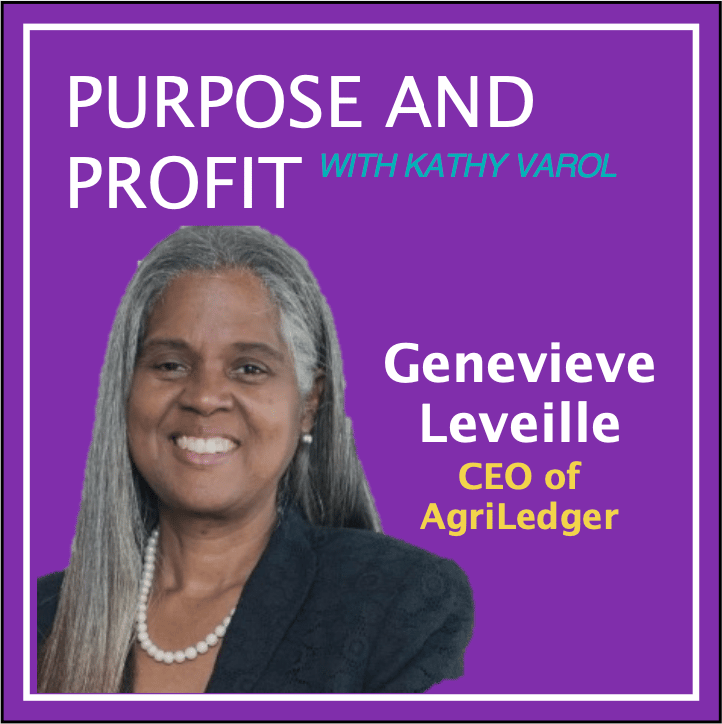Show Notes:
Genevieve Leveille, the founder and CEO of AgriLedger, is using blockchain to improve one of humankind’s oldest industries. Agriledger is on a mission to revolutionize agriculture and provide a better life for farmers by leveraging new technologies to enable trust and transparency in the agriculture ecosystem. Providing traceability from seed to customer.
Originally from Haiti and now based in the UK, Genevieve has a reputation for the delivery of disruptive technologies in large-scale projects, and is recognized as an authority in the realm of digital identity and financial transformation. She is vice-chair for the techUK Distributed Ledger Technologies (DLT) Working Group, an organization that provides strategic direction for all UK activities related to blockchain and DLT; an inaugural member of the Advisory Group for the Estonian Government’s eResidency initiative for the digital identity; finalist in the Women in IT Awards 2016 (Security Champion); recognized by Innovate Finance by inclusion on their “Women in 2016/17 Fintech Power List”.
You can follow Genevieve on Twitter.
In this episode we discuss:
- What 60% of the world’s population has in common
- The lesson from NFT’s (non-fungible tokens) that can be used to sustainably lift the bottom 40% out of poverty
- Creating a more equitable system for the largest global industry
- The test project that increased Haitian mango farmers income by 7x
- How agriculture shaped start-up vernacular, and what start-ups can teach agriculture
- How repurposing blockchain technology can reduce child mortality
Key Takeaways:
- How much waste there is in the current food ecosystem, and the considerable impact on solving food insecurity and reducing hunger that can happen from increasing food distribution effectiveness.
- We’ve all heard of blockchain, which is a type of distributed ledger technology. And while blockchain remains shrouded in mystery for most of us, distributed ledger technology has the potential to change the way markets function. For example, by allowing artists to make money with each subsequent sale of their art (instead of just the first sale), or by allowing farmers to receive a greater share of the value from their harvest. This is a great example of the power of repurposing innovation from one industry to another.
- Certain crops grow best in certain places. This took me back to economics 101 and the concept of competitive advantage, which refers to factors that allow a company or country to produce goods or services better or more cheaply than its rivals. No country wants to be completely food insecure (dependent on imports from other countries to feed itself) but, maybe not every country needs to be producing avocados. One thing that COVID has demonstrated is just how integrated the globe is, and how, if we work as a globe to solve problems, we are able to move mountains in record time. If we were to look at the food ecosystem more holistically from a global standpoint, I wonder what would happen,what changes we would make, and how value would be redistributed around the globe.
References:
- Agriledger
- Taxol is a brand of the cancer drug paclitaxel
- Memorial Sloan Kettering Cancer Center in New York
- Yo! MTV
- “Digital identification: A key to inclusive growth”, McKinsey Global Institute, 2019
- The OECD site on blockchain and distributed ledger technology
- “A Problem from Hell”: America and the Age of Genocide by Samantha Power
- “What Are NFTs, Anyway? One Just Sold for $69 Million.“, Josie Thaddeus-Johns, The New York Times, March 11th, 2021
- The World Bank site on global agriculture
- Centers for Disease Control information on E. coli outbreaks affecting romaine lettuce
- Food & Drug Administration information on Walmart’s voluntary recall including mango
- World Health Organization factsheet on food safety, 2020
- Wageningen University, the Netherlands, project in Haiti

